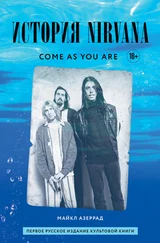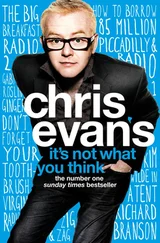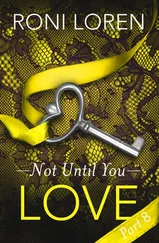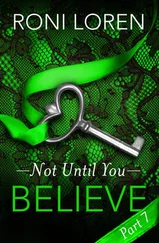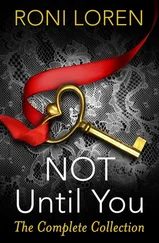‘You know,’ he continued, ‘when the white man first came, a lot of people thought he didn’t have any toes. They thought that his shoes were his actual feet.’
He laughed in a jolly, drowsy way that made her smile a drowsy, jolly smile. She also had heard all sorts of amusing stories about when the white man first turned up. Her grandmother had told her that the very first time she saw a white man, she and her friends had run away, thinking it was an evil spirit.
‘You have such beautiful hair,’ Engineer continued. ‘Have you gone to school?’
‘Yes, I’ve finished secondary school.’
‘What of university? Don’t you want to read further?’
‘I’m learning how to sew.’
‘Ah. Learning how to sew and going to university are not the same thing. Look at all these people you see going to the farm every day.’ With his right hand, he drew a slow semi-circle in the air. ‘Do you know what they could have been if they had gone to school?’
She did not.
‘Some of them could have been great inventors, great doctors or engineers. Some of them would have been known in other parts of the world. Have you ever heard of the nature/nurture controversy?’
She had not.
‘These people,’ he said, turning to face her, ‘if they were taken away from this environment and placed somewhere else for a while… just a little while… they would all be very different.’
He kept quiet to allow her to digest his words. Then she remembered the discussion of the other day.
‘Is it true that monkeys are our ancestors?’ she asked.
Engineer smiled with gladness.
‘Augustina, I like you. You’re a smart girl. I like the way you listen and ask questions.’
One of her father’s wives had complained that this was her main problem in life, that she asked too many questions for a girl.
‘They call it evolution,’ he said, and then told her how scientists said that men were once monkeys, that the monkeys had gradually turned into human beings. He said that Christians were angry about this because the Bible says God created man.
‘Why was the world originally without form and void? Could God have created it that way?’ He shook his head vehemently, as if he were resetting the bones in his skull. ‘I don’t think so. There must have been another earth that existed before Genesis, which was destroyed. Some parts of the Bible make mention of it. That old earth must have had another man who looked like a monkey. But when creating the new earth, God decided to make the new type of man in His own image.’
Augustina’s head swung from side to side like someone in a mini trance. He talked more about dinosaurs and other strange animals that must have existed in that old earth, about how scientists had even been finding their bones. Right there and then, Augustina fell in love with his brain. Throughout that night, his voice led a procession of his words all around her mind. She wondered how all this information could be contained in one head, how all this confidence could be exuding from one breath.
Afterwards, he came more and more often to see her. Eventually, he raised the issue again.
‘Augustina, why don’t you go to university?’
She smiled on one side of her face and kicked at a passing earthworm. Each time Augustina was tempted to consider the issue, she remembered her father. He would never approve. The sensible thing for a girl to focus on at this time of her life was getting married and building a home.
‘I don’t want to go back to school,’ she said firmly. ‘I’ve decided that I want to sew and that’s what I’m going to do. Please stop asking me.’
They sat in silence while she watched the earthworm wriggle away to a better life. This was the first time she had spoken to him sternly. She hoped he was not put off, and she was already composing a suitable apology in her mind when he uncrossed his legs and sat superintendent straight.
‘If you go to university,’ he said, ‘I will marry you.’
Augustina gaped like a trout.
‘Augustina, if you agree to go back to school, I’ll assist with your fees, and when you finish, I’ll marry you.’
That was how he proposed.
On the day that her admission letter to study Clothing and Textile at the University of Nigeria, Nsukka, arrived, Engineer leapt over the moon and back.
‘Augustina,’ he said feverishly, ‘our children are going to be great. They’re going to have the best education. They’re going to be engineers and doctors and lawyers and scientists. They’re going to have English names and they’re going to speak English like the queen. And from now on, stop calling me Engineer. Call me Paulinus.’
Then he lost control of himself and did something that he had never done before. He ran his fingers through her hair and told her that he loved her.
Okuko si na ya anaghi eti ka egbe ji ya haa
ya; kama na ya na-eti ka oha nuru olu ya.
The chicken carried away by a hawk says that it is crying not
so that the thing carrying it will let it go, but so that the
public will hear its voice and be witness.
My taste buds had been hearing the smell of my mother’s cooking and my stomach had started talking. Finally, she called out from the kitchen and my siblings rushed in to fetch their meals. Being the opara of the family, I was entitled to certain privileges. As first son, I sat at the dining table and waited. My mother soon appeared carrying a broad plastic tray with an enamel bowl of water, a flat aluminium plate of garri, and a dainty ceramic bowl of egusi soup.
I washed my hands and began to eat slowly. The soup should have been a thick concoction of ukazi leaves, chunks of dried fish and boiled meat, red palm oil, maggi cubes – all boiled together until they formed a juicy paste. But what I had in front me were a midget-sized piece of meat, bits of vegetable, and random specks of egusi, floating around in a thin fluid that looked like a polluted stream.
The piece of meat looked up at me and laughed. I would have laughed back but there was nothing funny about the situation at all. My mother was not a novice in the kitchen. This pitiful presentation was a reflection of the circumstances in our home. Life was hard. Times were bad. Things had not always been like this.
After her Clothing and Textile degree, my mother had travelled to the United Kingdom with my father. They returned armed with Masters degrees. He was posted to the Ministry of Works and Transport in Umuahia; she acquired a sizeable tailoring shop that still stood at the exact same spot where it had been founded all those years ago. My father’s earnings alone had been more than enough, but years of rising inflation without any corresponding increase in civil servant wages had gradually rendered the amount insignificant.
Then came my father’s diagnosis. For a poorly paid civil servant to dabble in an affliction like diabetes was the very height of ambitious misfortune. The expenditure on his tablets and insulin alone was enough for the upkeep of another grown child. And since his special diet banned him from large quantities of the high-carbohydrate staple foods in our part of the world, he was now constrained to healthier, less affordable alternatives. The little income from the tailoring shop plus my father’s pension were what we were now surviving on.
My mother reappeared at the dining table, laden with another tray, which had my father’s melancholic lunch on it. The front of her dress was stained with the sticky, black fluid from the unripe plantains that she had used to make her husband’s porridge. She arranged the tray at the head of the table and sat in her place next to his.
Читать дальше
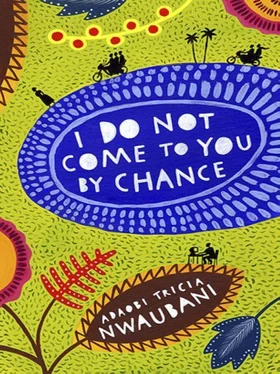
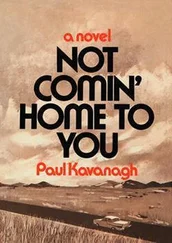

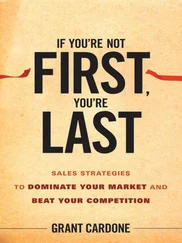

![Майкл Азеррад - Come as you are - история Nirvana, рассказанная Куртом Кобейном и записанная Майклом Азеррадом [litres]](/books/392533/majkl-azerrad-come-as-you-are-istoriya-nirvana-ra-thumb.webp)
